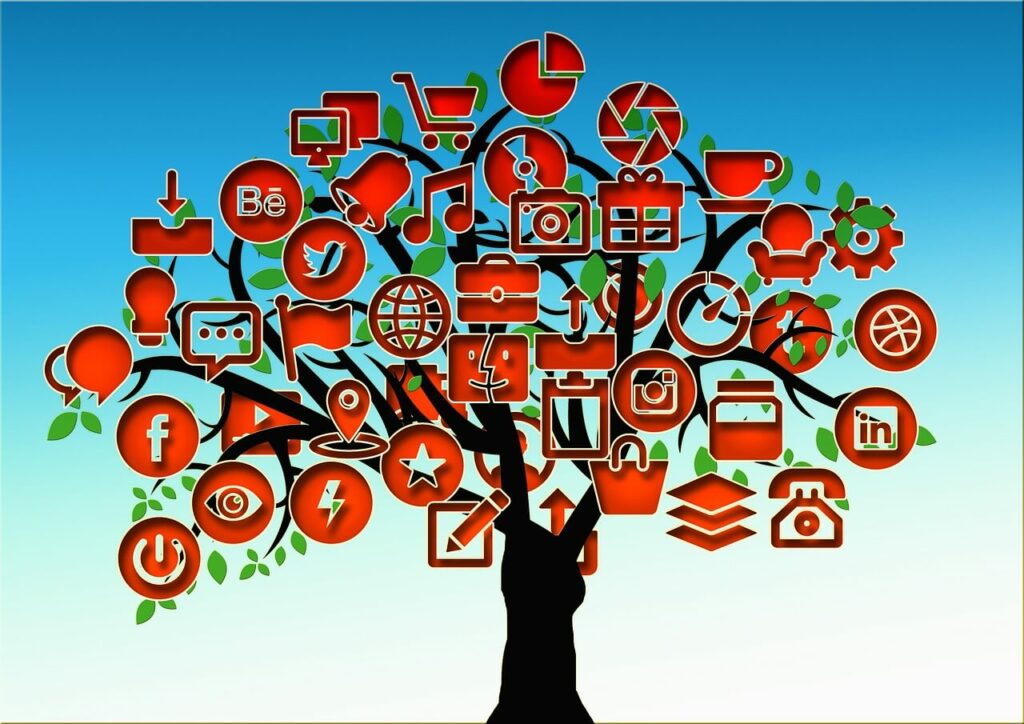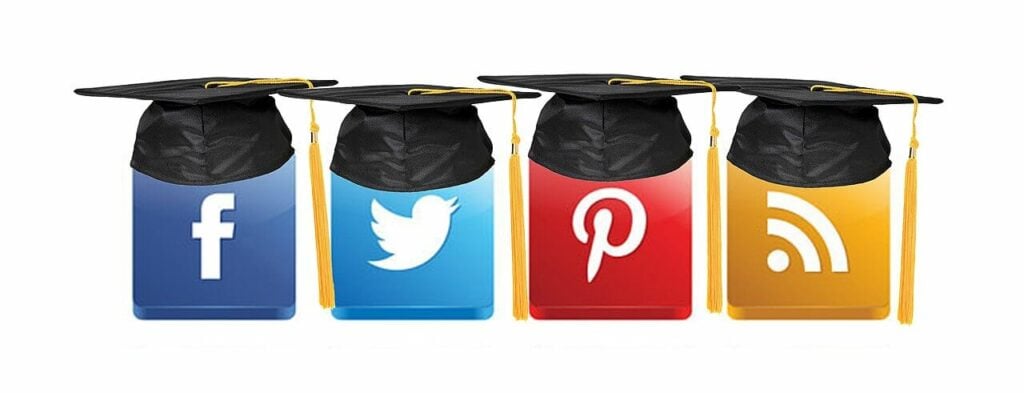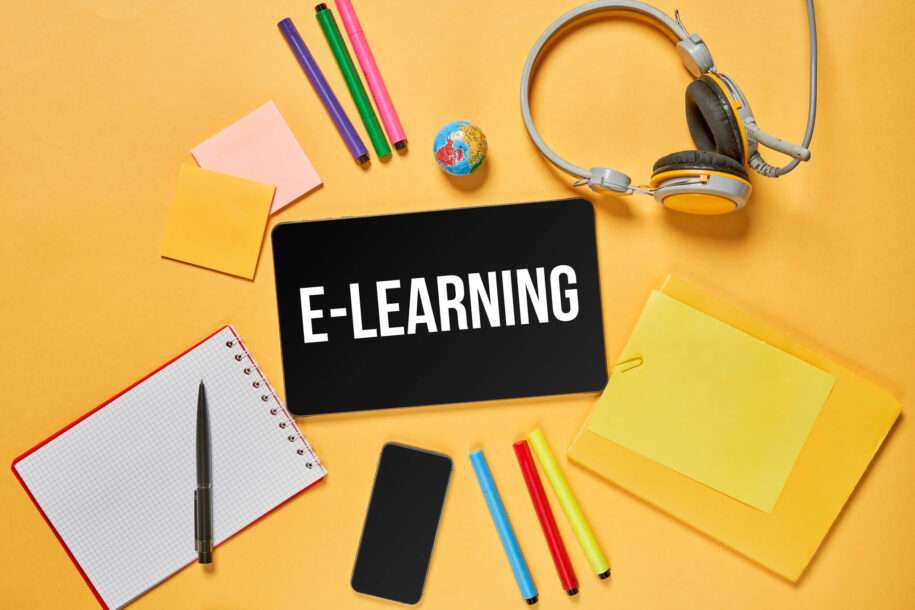The rising effects of social media effects on education are undeniable.
These networks present suitable avenues for students to gather all the resources they need for their academic pursuits.
Done correctly, a student can leverage social media to connect with peers, mentors, and experts in their field of study.
In addition to many articles, videos, and podcasts, accessing credible online courses has never been easier.
If you want to know how media affects students and want to take advantage of the positive effects of social media on students’ research papers, this post is for you!
We’ll review the various ways social media can aid education and how to make the best of it.
Let’s begin!
Table of Contents
The Benefits of Social Media for Students

Social media platforms have revolutionized the way people interact and communicate with one another. For students, social media offers a range of benefits, particularly in terms of communication and cooperation.
Here are some of the ways that social media can benefit students:
Communication and Cooperation
Starting the list is one of the primary reasons social networking sites were created: Communication. Students can seamlessly collaborate on group projects or assignments, and network with peers, mentors, and professionals.
Quick and easy communication with teachers or professors and sharing educational resources like articles, videos, and podcasts make learning enjoyable.
Furthermore, social media platforms enable students to stay connected and share their thoughts and ideas even when not physically together.
This core advantage can result in a more productive and successful academic journey.
A Source of Necessary Information
From academic updates to campus activities, social media is a one-stop shop for all necessary reports.
The best part? The information is easily accessible and available at any time. Whether it is a quick message to a lecturer or upcoming events on campus, social media has dramatically reduced the gap between students and the school administration.
With just a few clicks, students can stay informed and up-to-date with all the latest news and developments. Undoubtedly, social media has revolutionized how students gather and digest information, making education more accessible and inclusive.
Opportunities for Distance Learning
Distance learning is here to stay, and there is no sign of slowing down any time soon. Luckily, social media is aiding this learning option.
Whether through chats with classmates, online study groups, webinars, or live streams, social media is making education more accessible than ever.
With the added convenience of accessing their studies from wherever they are, students can fulfill their academic pursuits while balancing other responsibilities.
A Place for Finding a Job
With so many job postings and employment opportunities available online, social media can provide a direct and efficient way to connect with potential employers.
For instance, sites like LinkedIn and Twitter offer a range of benefits for students seeking employment.
These platforms allow students to create professional profiles, connect with employers and industry professionals, and apply for job vacancies.
LinkedIn, in particular, has become an essential platform for students seeking job opportunities. It offers a job search feature that allows students to filter job openings based on their preferences and qualifications.
Additionally, LinkedIn provides resources for students to improve their professional skills and knowledge, making it a valuable platform for students to prepare themselves for their chosen careers.
So, next time you’re scrolling through your feed, be on the lookout for job postings – your dream job might just be a click away!
A Place for Seeking Support
Many students face academic, personal, or mental health challenges during their studies. Fortunately, social media offers a solid environment for them to connect with others who are going through similar experiences.
Students can join online communities or groups on social media platforms like Facebook and Twitter to seek advice, support, and encouragement from peers and professionals. Social media also offers a platform for students to share their experiences and support others who may be struggling.
Moreover, many educational institutions have social media pages or groups where students can access information about academic resources, events, and services.
These pages can help students connect with their professors, academic advisors, and other staff.
Experience Global Exposure
By connecting with people from different countries and cultures, students can gain a deeper understanding of the world and broaden their perspectives.
Social media platforms like Twitter and Instagram provide a platform for students to follow international news sources and opinion leaders. They can also follow influencers and bloggers who share their experiences and insights about different cultures and lifestyles.
Moreover, social media helps students to connect with people from different countries and participate in online discussions and forums. They can join international groups or communities on Facebook or LinkedIn and engage with people worldwide.
By gaining global exposure through social media, students can enhance their cultural awareness, communication skills, and cross-cultural understanding. They can also build international networks and develop relationships with people from different backgrounds and perspectives.
Tips for Getting the Best From Social Media

While social media has many benefits for students, it poses potential dangers such as cyberbullying, online harassment, exposure to inappropriate content, and addiction. And many students are exploring social media research paper topics related to the impact of social media on mental health.
With that said, here are some ways that students can mitigate these dangers:
- Be mindful of what you post: As a student, you’d want to be mindful of your content on social media platforms. Avoid sharing personal information, such as their full name, address, or phone number. Additionally, be careful about the type of photos and videos they share, as these can be used to bully or harass you.
- Protect your privacy: Students should take steps to protect their privacy on social media platforms. They should use strong passwords, enable two-factor authentication, and adjust their privacy settings to control who can see their content.
- Be aware of online etiquette: Be respectful as you conduct yourself. You should avoid posting or sharing content that is offensive or discriminatory.
- Limit screen time: Limit your screen time and take breaks from social media to prevent addiction and promote mental health.
Conclusion
How the media affects students varies from person to person. However, social networks can be beneficial when used wisely. SM can serve as an excellent study aid since there are many websites and applications that can help with the task of studying.
Additionally, using social media to connect with friends and participate in online groups for support can benefit personal and educational development.
Overall, it is vital to manage screen time on your device and remember to occasionally disconnect from technology and experience real-life social interaction.
Furthermore, understand the potential risks associated with platforms such as cyberbullying, trolling, and other forms of digital aggression/harassment.
Above all else, safety should always come first! Social media isn’t going anywhere anytime soon, but we must ensure students use these tools safely.
- Mastering Social Media: Tips and Strategies for Effective Marketing - octobre 3, 2023
- Harnessing the Power of Social Media for Elevating Customer Service - octobre 3, 2023
- Social Media Marketing Insights and Strategies for Success - octobre 3, 2023

